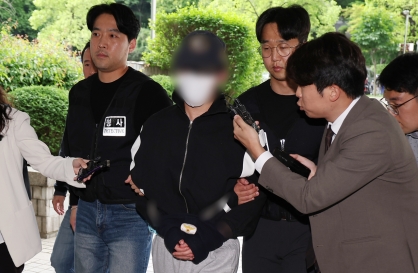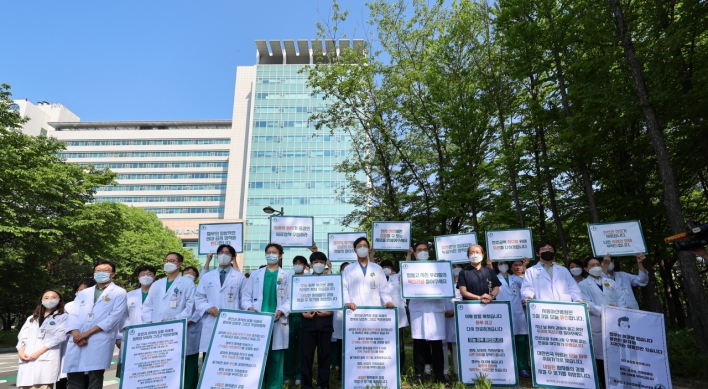Views clash on economic policies in parliamentary audit
By Korea HeraldPublished : Oct. 5, 2016 - 16:20
Rival party lawmakers gave clashing reviews of the country’s economy and the government’s economic policies during a parliamentary audit Wednesday.
Lawmakers from opposition parties stressed that expansionary policies to bolster the property market resulted in rising housing expenses for the ordinary citizen and snowballing household debt. But those from the ruling Saenuri Party noted the Korean economy is in better shape in some areas compared to that under former President Lee Myung-bak.

Rep. Kim Hyun-mi of the Minjoo Party of Korea said the most “critical” policy was “Choi-nomics,” an expansionary policy the Finance Ministry pursued in 2014 and 2015 under former Finance Minister Choi Kyung-hwan.
“After repeated cuts of the central bank’s interest rates to prop up the real estate market, the interest rate has gone to a record low. This only resulted in massive housing expenses for the ordinary and a surge in household debt,” Kim said.
Rep. Kim Sung-sik of the People’s Party criticized the government for focusing only on short-term expansionary polices rather than on long-term structural reforms and the improvement of the social safety net. “The government seems to be complacent about their policies, only wishing that nothing big really happens within this administration,” he said.
Rep. Kim Jong-min of the Minjoo Party urged Finance Minister Yoo Il-ho to come up with measures to cut debt-to-income and loan-to-value ratios, which were raised under Choi-nomics, to counter the fast growth of household debt.
In response, Yoo said it was true the growth of household debt was worrisome, but the quality of it was “not so bad.”
“The problem of household debt will not be solved only by adjusting DTI and LTV ratios. The household debt is undesirably too big, but in terms of quality, it seems not so bad,” Yoo told lawmakers.
On the other hand, Saenuri Party’s policy chief Kim Gwang-lim said the Korean economy improved in terms of global rankings in GDP and credit ratings under the current administration.
“Overseas reports say Korea’s GDP ranking rose to 11 from 14 in 2012. Korea’s credit ratings is the seventh in the world, better than that of Japan or China,” Kim said.
Rep. Park Myung-jae of the Saenuri Party called on the government to quickly spend an unused 13 trillion won budget ($11.7 billion) that accounts for 9.3 percent of the total budget for 2016 to help boost Korea’s growth rate.
On tax policy, Rep. Kim Boo-kyum of the Minjoo Party said the government should raise the corporate tax rate by 3 percent, after it was cut under the former Lee administration, for conglomerates whose taxable revenues exceed 50 billion won.
However, Yoo said the costs of raising the corporate tax rate will override benefits in the mid- and long-term.
On relations between the government and chaebol, lawmaker Lee Un-ju of the Minjoo Party said 19 state-run entities should withdraw from the Federation of Korean Industries, saying they are using taxpayers’ money to pay the annual membership fees for the business group.
By Kim Yoon-mi (yoonmi@heraldcorp.com)
Lawmakers from opposition parties stressed that expansionary policies to bolster the property market resulted in rising housing expenses for the ordinary citizen and snowballing household debt. But those from the ruling Saenuri Party noted the Korean economy is in better shape in some areas compared to that under former President Lee Myung-bak.

Rep. Kim Hyun-mi of the Minjoo Party of Korea said the most “critical” policy was “Choi-nomics,” an expansionary policy the Finance Ministry pursued in 2014 and 2015 under former Finance Minister Choi Kyung-hwan.
“After repeated cuts of the central bank’s interest rates to prop up the real estate market, the interest rate has gone to a record low. This only resulted in massive housing expenses for the ordinary and a surge in household debt,” Kim said.
Rep. Kim Sung-sik of the People’s Party criticized the government for focusing only on short-term expansionary polices rather than on long-term structural reforms and the improvement of the social safety net. “The government seems to be complacent about their policies, only wishing that nothing big really happens within this administration,” he said.
Rep. Kim Jong-min of the Minjoo Party urged Finance Minister Yoo Il-ho to come up with measures to cut debt-to-income and loan-to-value ratios, which were raised under Choi-nomics, to counter the fast growth of household debt.
In response, Yoo said it was true the growth of household debt was worrisome, but the quality of it was “not so bad.”
“The problem of household debt will not be solved only by adjusting DTI and LTV ratios. The household debt is undesirably too big, but in terms of quality, it seems not so bad,” Yoo told lawmakers.
On the other hand, Saenuri Party’s policy chief Kim Gwang-lim said the Korean economy improved in terms of global rankings in GDP and credit ratings under the current administration.
“Overseas reports say Korea’s GDP ranking rose to 11 from 14 in 2012. Korea’s credit ratings is the seventh in the world, better than that of Japan or China,” Kim said.
Rep. Park Myung-jae of the Saenuri Party called on the government to quickly spend an unused 13 trillion won budget ($11.7 billion) that accounts for 9.3 percent of the total budget for 2016 to help boost Korea’s growth rate.
On tax policy, Rep. Kim Boo-kyum of the Minjoo Party said the government should raise the corporate tax rate by 3 percent, after it was cut under the former Lee administration, for conglomerates whose taxable revenues exceed 50 billion won.
However, Yoo said the costs of raising the corporate tax rate will override benefits in the mid- and long-term.
On relations between the government and chaebol, lawmaker Lee Un-ju of the Minjoo Party said 19 state-run entities should withdraw from the Federation of Korean Industries, saying they are using taxpayers’ money to pay the annual membership fees for the business group.
By Kim Yoon-mi (yoonmi@heraldcorp.com)
-
Articles by Korea Herald










![[K-pop’s dilemma] Time, profit pressures work against originality](http://res.heraldm.com/phpwas/restmb_idxmake.php?idx=644&simg=/content/image/2024/05/08/20240508050705_0.jpg&u=20240508171126)








